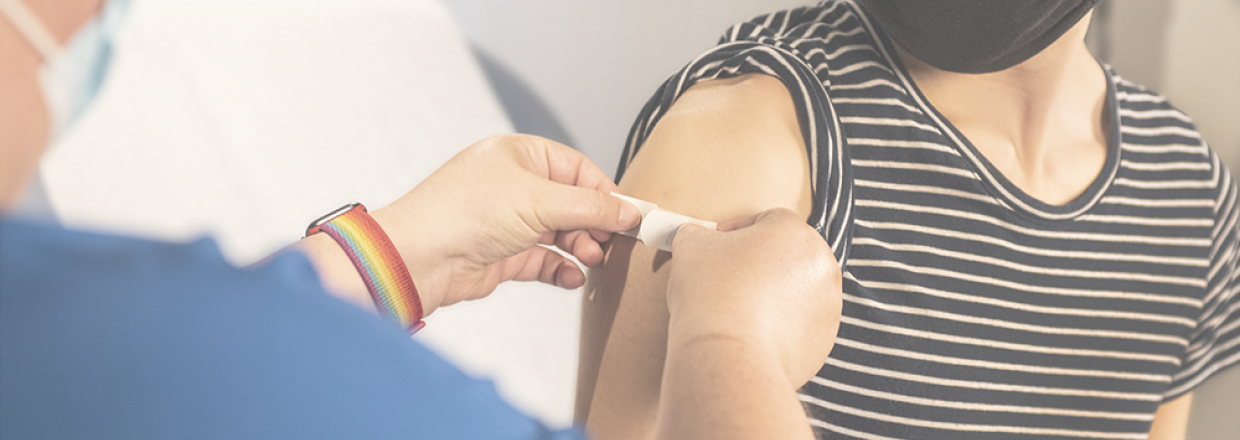With this in mind, we asked our Consultant MSK Physiotherapist, Debbie Christer, to explain why some people experience soreness and stiffness in their arm after vaccination, and how they can best manage and relieve any associated aches and pains. Here’s what she had to say.
Why do some people experience soreness after their Covid vaccine?
The Covid-19 vaccine is recommended to protect you and others from infection and serious illness, and the benefits of vaccination far outweigh the potential risks. A common reaction to the jab comes in the form of a sore arm. It is a symptom that often resolves itself within a few days and not everyone suffers from it. But what’s behind this side effect?
When we get jabbed, the vaccine causes an immune reaction, which is precisely what it is designed to do. It is the body's way of saying it needs to act. This can result in inflammation in the area of the arm where the injection has occurred.
The Covid-19 vaccine is an intramuscular injection, meaning that it’s administered into a muscle. It’s often recommended that the best muscle to inject the vaccine into is the deltoid, a large muscle that gives the shoulder its range of motion. Muscles have an excellent blood supply to help the vaccine move through the body, mixing with T-Cells and B-Cells (white blood cells that help defend our body against specific diseases).
It’s also true that the drug can linger in the muscle for a while. In some cases, pain and stiffness may take a little longer to improve, especially in the area where the vaccine was administered, as in less common cases of SIRVA (a shoulder injury related to vaccine administration). Any pre-existing joint pain and stiffness may also feel more noticeable initially. However, serious long-term side effects are unlikely following vaccinations.
How can I help manage any soreness?
If you are feeling sore after the jab, there are a few things you can do to help manage the pain and prevent your arm from getting stiff:
- Keep moving: To help reduce any stiffness in your muscles and joints, try to keep active and avoid sitting still for prolonged periods of time. It’s perfectly fine to indulge in a regular exercise routine.
- Don't over do it: While it is important to keep moving and exercise, it's generally best to avoid really strenuous exercise if you feel at all sore. So don’t push yourself beyond your limits - and make sure you are getting enough rest too!
- Eat healthily: Nutritious, healthy foods will accelerate your recovery, so make sure you’re eating plenty of fruit and veg. Read our top tips for maintaining a health diet here.
Does it matter what arm I get the jab in?
In terms of the vaccine’s effectiveness, it makes absolutely no difference if you’re jabbed in your left or right arm. However, it may be useful to think about which arm you use the most. Would your daily activities be affected if your dominant arm was sore? If so, it’s probably wise to have the jab in your non-dominant arm, which you’re likely to use less.
It is important to stress there is no wrong or right answer, and you should consider if you can modify your activities until the soreness subsides - though it’s quite possible you won’t experience any soreness at all in the first place!
What should you do if you are concerned about your pain?
If you have persistent arm pain or swelling for three days following a vaccination, you should seek advice from a healthcare professional at your GP surgery, as they may need to rule out infection. In the short term, they may suggest over-the-counter medicine, such as anti-inflammatories, to help relieve your symptoms.
You should always seek medical advice if you experience any of the following:
- Chest pain
- Shortness of breath
- Feelings of having a fast-beating, fluttering, or pounding heart
